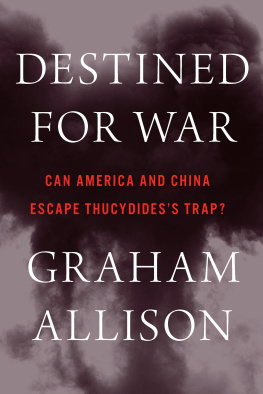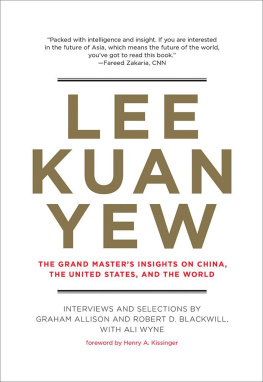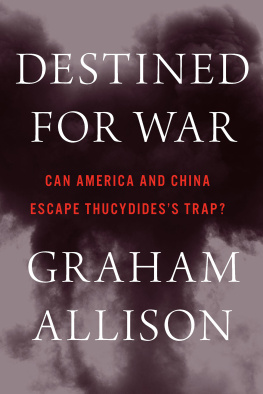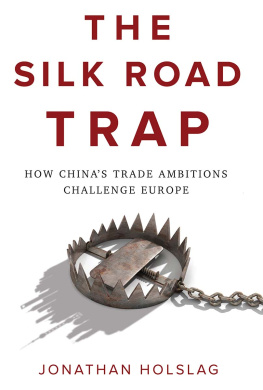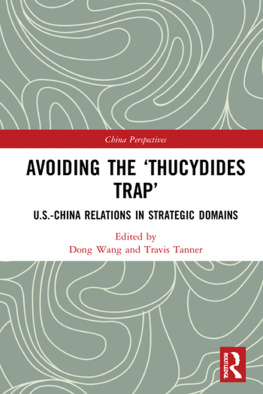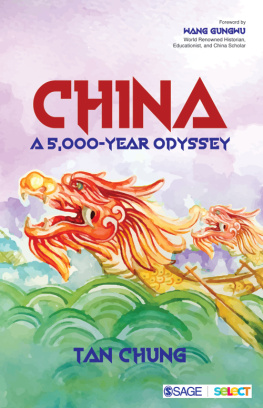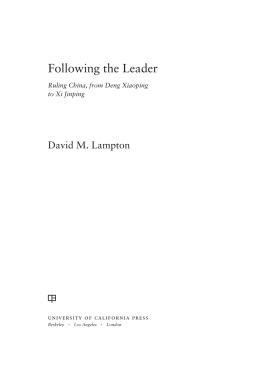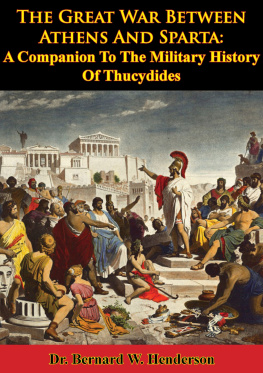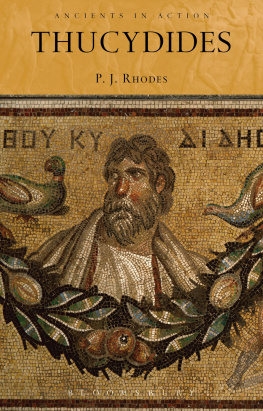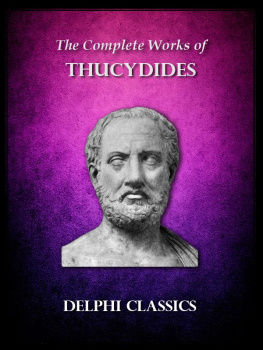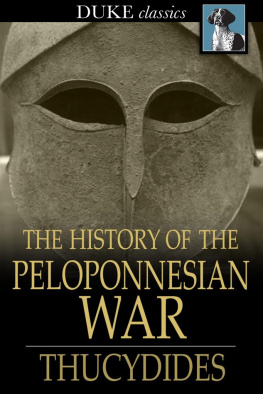Copyright 2017 by Graham Allison
All rights reserved
For information about permission to reproduce selections from this book, write to or to Permissions, Houghton Mifflin Harcourt Publishing Company, 3 Park Avenue, 19th Floor, New York, New York 10016.
www.hmhco.com
Library of Congress Cataloging-in-Publication Data is available.
ISBN 978-0-544-93527-3
Cover design by Brian Moore
Cover photograph Getty Images
e ISBN 978-0-544-93533-4
v1.0517
Source of data: Courtesy of the author.
Preface
Two centuries ago, Napoleon warned, Let China sleep; when she wakes, she will shake the world. Today China has awakened, and the world is beginning to shake.
Yet many Americans are still in denial about what Chinas transformation from agrarian backwater to the biggest player in the history of the world means for the United States. What is this books Big Idea? In a phrase, Thucydidess Trap. When a rising power threatens to displace a ruling power, alarm bells should sound: danger ahead. China and the United States are currently on a collision course for warunless both parties take difficult and painful actions to avert it.
As a rapidly ascending China challenges Americas accustomed predominance, these two nations risk falling into a deadly trap first identified by the ancient Greek historian Thucydides. Writing about a war that devastated the two leading city-states of classical Greece two and a half millennia ago, he explained: It was the rise of Athens and the fear that this instilled in Sparta that made war inevitable.
That primal insight describes a perilous historical pattern. Reviewing the record of the past five hundred years, the Thucydidess Trap Project I direct at Harvard has found sixteen cases in which a major nations rise has disrupted the position of a dominant state. In the most infamous example, an industrial Germany rattled Britains established position at the top of the pecking order a century ago. The catastrophic outcome of their competition necessitated a new category of violent conflict: world war. Our research finds that twelve of these rivalries ended in war and four did notnot a comforting ratio for the twenty-first centurys most important geopolitical contest.
This is not a book about China. It is about the impact of a rising China on the US and the global order. For seven decades since World War II, a rules-based framework led by Washington has defined world order, producing an era without war among great powers. Most people now think of this as normal. Historians call it a rare Long Peace. Today, an increasingly powerful China is unraveling this order, throwing into question the peace generations have taken for granted.
In 2015, the Atlantic published The Thucydides Trap: Are the US and China headed for War? In that essay I argued that this historical metaphor provides the best lens available for illuminating relations between China and the US today. Since then, the concept has ignited considerable debate. Rather than face the evidence and reflect on the uncomfortable but necessary adjustments both sides might make, policy wonks and presidents alike have constructed a straw man around Thucydidess claim about inevitability. They have then put a torch to itarguing that war between Washington and Beijing is not predetermined. At their 2015 summit, Presidents Barack Obama and Xi Jinping discussed the Trap at length. Obama emphasized that despite the structural stress created by Chinas rise, the two countries are capable of managing their disagreements. At the same time, they acknowledged that, in Xis words, should major countries time and again make the mistakes of strategic miscalculation, they might create such traps for themselves.
I concur: war between the US and China is not inevitable. Indeed, Thucydides would agree that neither was war between Athens and Sparta. Read in context, it is clear that he meant his claim about inevitability as hyperbole: exaggeration for the purpose of emphasis. The point of Thucydidess Trap is neither fatalism nor pessimism. Instead, it points us beyond the headlines and regime rhetoric to recognize the tectonic structural stress that Beijing and Washington must master to construct a peaceful relationship.
If Hollywood were making a movie pitting China against the United States on the path to war, central casting could not find two better leading actors than Xi Jinping and Donald Trump. Each personifies his countrys deep aspirations of national greatness. Much as Xis appointment as leader of China in 2012 accentuated the role of the rising power, Americas election of Donald Trump in a campaign that vilified China promises a more vigorous response from the ruling power. As personalities, Trump and Xi could not be more different. As protagonists in a struggle to be number one, however, they share portentous similarities. Both
Are driven by a common ambition: to make their nation great again.
Identify the nation ruled by the other as the principal obstacle to their dream.
Take pride in their own unique leadership capabilities.
See themselves playing a central role in revitalizing their nation.
Have announced daunting domestic agendas that call for radical changes.
Have fired up populist nationalist support to drain the swamp of corruption at home and confront attempts by each other to thwart their nations historic mission.
Will the impending clash between these two great nations lead to war? Will Presidents Trump and Xi, or their successors, follow in the tragic footsteps of the leaders of Athens and Sparta or Britain and Germany? Or will they find a way to avoid war as effectively as Britain and the US did a century ago or the US and the Soviet Union did through four decades of Cold War? Obviously, no one knows. We can be certain, however, that the dynamic Thucydides identified will intensify in the years ahead.
Denying Thucydidess Trap does not make it less real. Recognizing it does not mean just accepting whatever happens. We owe it to future generations to face one of historys most brutal tendencies head on and then do everything we can to defy the odds.
Introduction
I have written my work, not as an essay to win the applause of the moment, but as a possession for all time.
Thucydides, History of the Peloponnesian War
Here we are on top of the world. We have arrived at this peak to stay there forever. There is, of course, this thing called history. But history is something unpleasant that happens to other people.
Arnold Toynbee, recalling the 1897 diamond jubilee celebration of Queen Victoria
Like other practicing historians, I am often asked what the lessons of history are. I answer that the only lesson I have learnt from studying the past is that there are no permanent winners and losers.
Ramachandra Guha
Ah, if we only knew. That was the best the German chancellor could offer. Even when a colleague pressed Theobald von Bethmann Hollweg, he could not explain how his choices, and those of other European statesmen, had led to the most devastating war the world had seen to that point. By the time the slaughter of the Great War finally ended in 1918, the key players had lost all they fought for: the Austro-Hungarian Empire dissolved, the German kaiser ousted, the Russian tsar overthrown, France bled for a generation, and England shorn of its treasure and youth. And for what? If we only knew.
Bethmann Hollwegs phrase haunted the president of the United States nearly half a century later. In 1962, John F. Kennedy was forty-five years old and in his second year in office, but still struggling to get his mind around his responsibilities as commander in chief. He knew that his finger was on the button of a nuclear arsenal that could kill hundreds of millions of human beings in a matter of minutes. But for what? A slogan at the time declared, Better dead than red. Kennedy rejected that dichotomy as not just facile, but false. Our goal, as he put it, had to be not peace at the expense of freedom, but both peace and freedom. The question was how he and his administration could achieve both.
Next page
